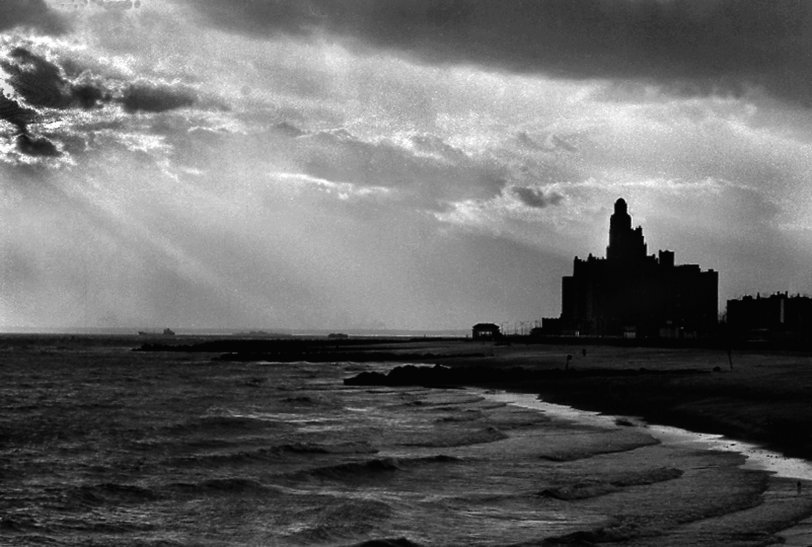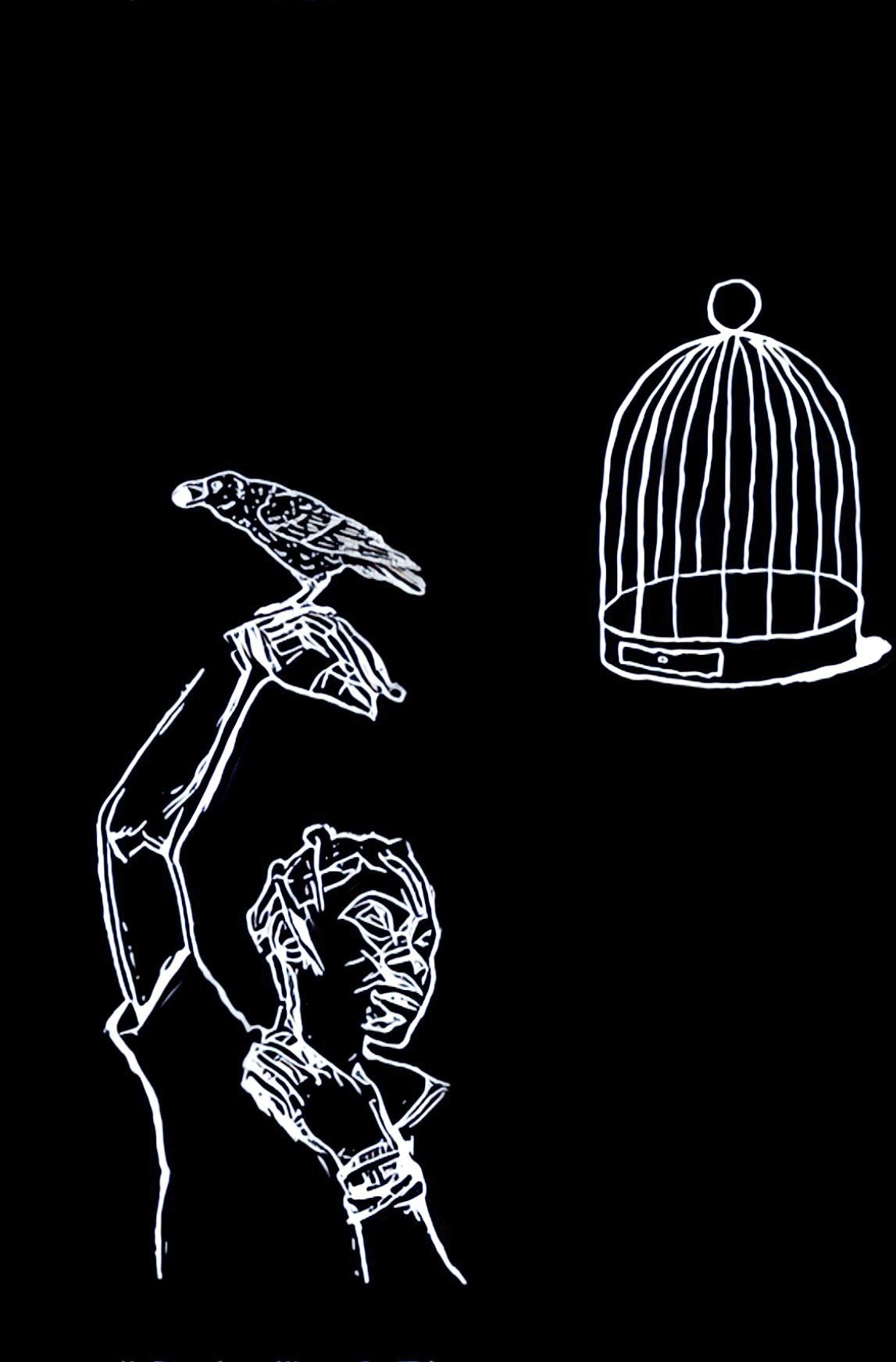I've seen how the sky becomes the echo of what's flown through it
—Carl Phillips, Brace Of Antlers
The rancher squints to the most distant crag and sees a cap of white too early for this time
of year. A north wind blows down through stands of spruce, their tops bruised purple from beetle
rot. She pulls her gloves from her pocket and looks again at the dwindled firewood stacked
against her late husband’s shed.
Elk season brings herds down from high country. Their ankles pop as they cross the
pasture, under trained scopes of hunters lying low in their blinds, out where the edges of her land
bleed into wilderness. Starlings in migration pour into the sky. From all directions, a maelstrom
of wings forms one dark body that blots the mountain peaks from her gaze.
Her boots edge along the dry creekbed. She continues to search the thistle, singed from
last year's fire, for heavenly consolation. Wind kicks up, and needles of black dust take root in
her throat, lifted from the same fine powder that just last spring, his brother’s two dour sons had
heaped onto his casket.
At night, she still hears that clean refrain: shovel's rasp as it punctures earth; one, taut
silence; then thump of dirt landing on dirt—triumphant, percussive, like a strain of marching
music.
Overhead, clouds roll in. Black orbs of birds smoke outward into a granular haze. Here
the tinny clang of livestock bells draws closer. When she turns to face the sound, the meadow is
filled with spangled faces, white bodies huddled, shoulder to shoulder, as one, indistinguishable
mass. All eyes rest on her.
The goddamned sheep got through the fence again.
She's too weary now for that job, the splintered shepherd's staff he wielded, which still
reeks of him, the burned hoof stench of shoeing, of leather, of his oozing amber gun oil been
sitting mercilessly on the shelf, and her traitorous hands too far past the sense of painting grease
to rifle parts.
Across the meadow, at forest's edge, an elk bull stops to check his backtrail. Furrows in
the grass make maps like scars, like hardened mementos of what’s to come. A sharp crack
spooks the sheep. They break and run, bleating. Another shot rings through the valley, boiling
the air with confusion.
There, the bull falls like a statue, where the pasture ends and the country road swirls with
tumbleweed, stretching without end in either direction. Here, the hunter appears through the
trees. He stops when he sees her, his face distorted, strange, and leached of color. She is already
bent beside the massive body, blood running down her fingers, warm drops tap-tapping the
hardening ground. Her empty shell casing glints in the grass. Now she's straightening, pulling her
memories up with her, and aims her rifle at the hunter. Now, he's backing toward the darkening
road, to the grayed fencepost, where the lone headstone tilts into a flight of charred stumps
Inna Effress is a speechwriter, fiction writer, and poet who emigrated from Ukraine to the United States. Her work appears in numerous publications, including Air/Light Magazine, Santa Monica Review, Swan River Press’s Uncertainties series, and Strange Tales at 30 (Tartarus Press). Her fiction has been reprinted in Best Horror of the Year and nominated for a Pushcart Prize. She writes for grassroots organizations and leaders in California that are working to bring equitable outcomes to their communities.





























